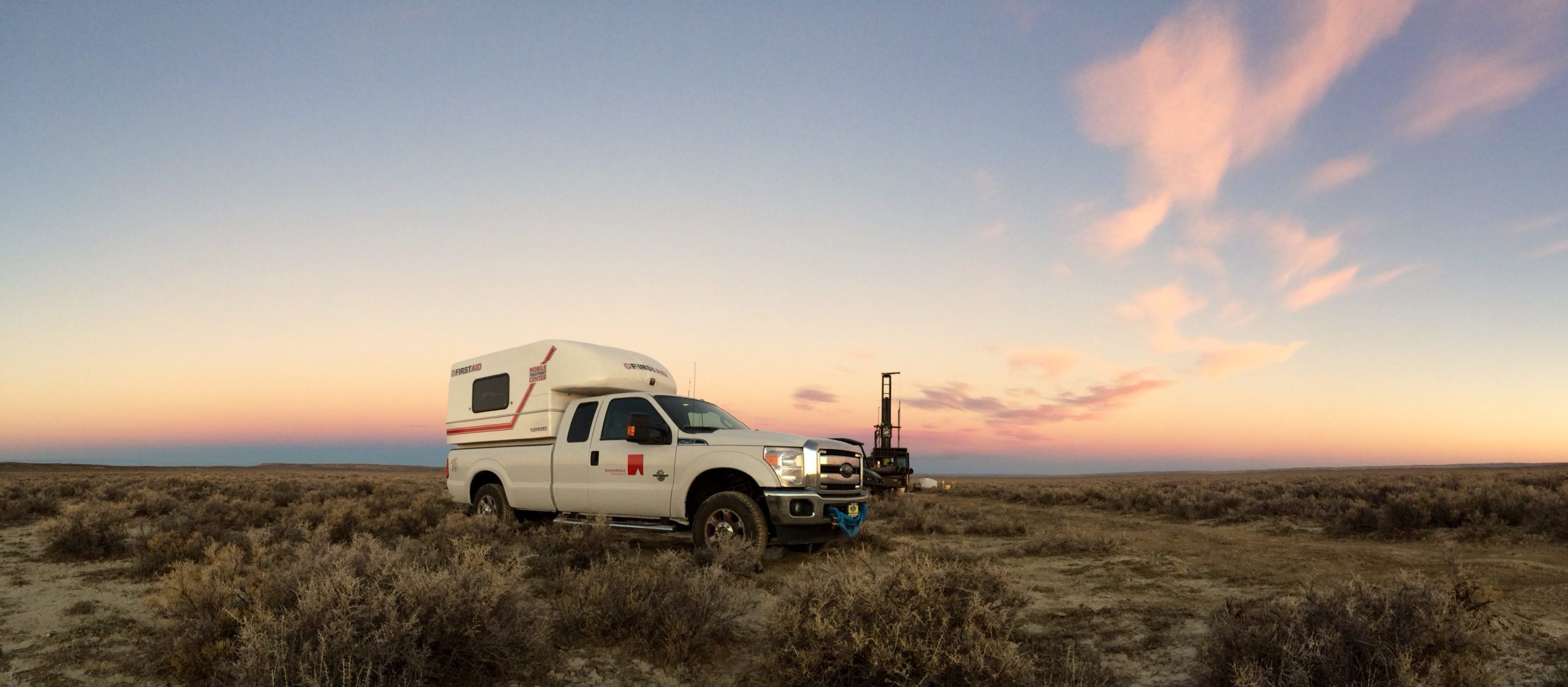When a sick 24-year-old worker didn’t show up to work, a foreman notified Remote Medical International Nurse Practitioner John Meyer and Paramedic Albert Ramirez at a standard “All Personnel” Safety Meeting. Our medics go above the call of duty to ensure each worker is safe and healthy, no matter when or where.
Located on a pipeline construction project in Texas, Meyer and Ramirez contacted the young man’s roommates, who all rent a house together about four miles from the yard.
Building confidence and relationships with workers, by being there for them both on and off-site 24/7, is an essential part of what we do in support of a project, said Meyer.
The roommates said the worker had been in pain since Sunday afternoon, and that he was “probably just constipated.†Meyer and Ramirez knew this laborer was a healthy male, and that it would be unlikely for him to stay home from work because of constipation.
Remote Medical International medics care for workers both on- and off-site because if a worker is unhealthy, it affects their ability to perform their job duties and potentially puts themselves and others at risk.
When workers know that their health and wellbeing are valued by an employer, I believe workers perform their duties more effectively and safely. This ultimately reduces worker turnover in this labor-stricken industry, said Meyer.
The patient greeted Meyer and Ramirez at the door, standing upright, but holding his lower abdominal area. Ramirez and Meyer decided to team up to get a S.A.M.P.L.E history, where they check patients symptoms, allergies, medications, past medical history, last oral intake, and the events leading up to illness. Meyer also noted this young man had some fine beads of sweat on his forehead and his skin was warm. After examining his abdominal area, Meyer’s diagnosis determined that the patient had right lower quadrant rebound tenderness with guarding, meaning possible appendicitis.
Since the worker only spoke Spanish, Ramirez—who is fluent in Spanish—communicated with the worker and gave a proper diagnosis. Meyer and Ramirez called the safety lead and explained the situation. The safety lead authorized the team to drive the patient to the closest emergency room where he was taken directly into a treatment bay.
When someone gets sick or injured and has to go off to a clinic, there’s a significant loss of man-hours and someone else needs to pick up the slack, said Meyer. In addition to reducing recordables, minimizing lost man-hours is crucial to both our duty and the success of the project.
The patient was further evacuated to the medical center in the closest city for surgical intervention. After the surgery was successful, he was released the following day.
Meyer and Ramirez followed-up with the patient and found him doing well. They checked on his condition, answered his questions, and assisted him in making a follow-up appointment with the surgical practice.
Our field providers frequently get off-hours house calls when working pipeline construction projects because pipeline workers live transient lifestyles, often in motels and trailers, where it is harder to take care of themselves properly. By having our medics on-site, we’re able to quickly assess and treat medical emergencies and decide if further treatment is necessary, rather than immediately sending them off to the nearest emergency room. On these projects, the nearest hospitals are often over an hour away which takes a lot of time away from work, and can create unnecessary recordables.
Having our medics on-site every day, building relationships and trust with the workers, bolsters confidence. Employees often check their health with our medics on the yard each morning before working on the project. Having this immediate access to medical care also boosts employee morale and happiness, which keeps productivity high and turnover low.
If you would like to learn how on-site medical care can transform the health, safety, and morale of your workers, contact Remote Medical International to learn more today.


